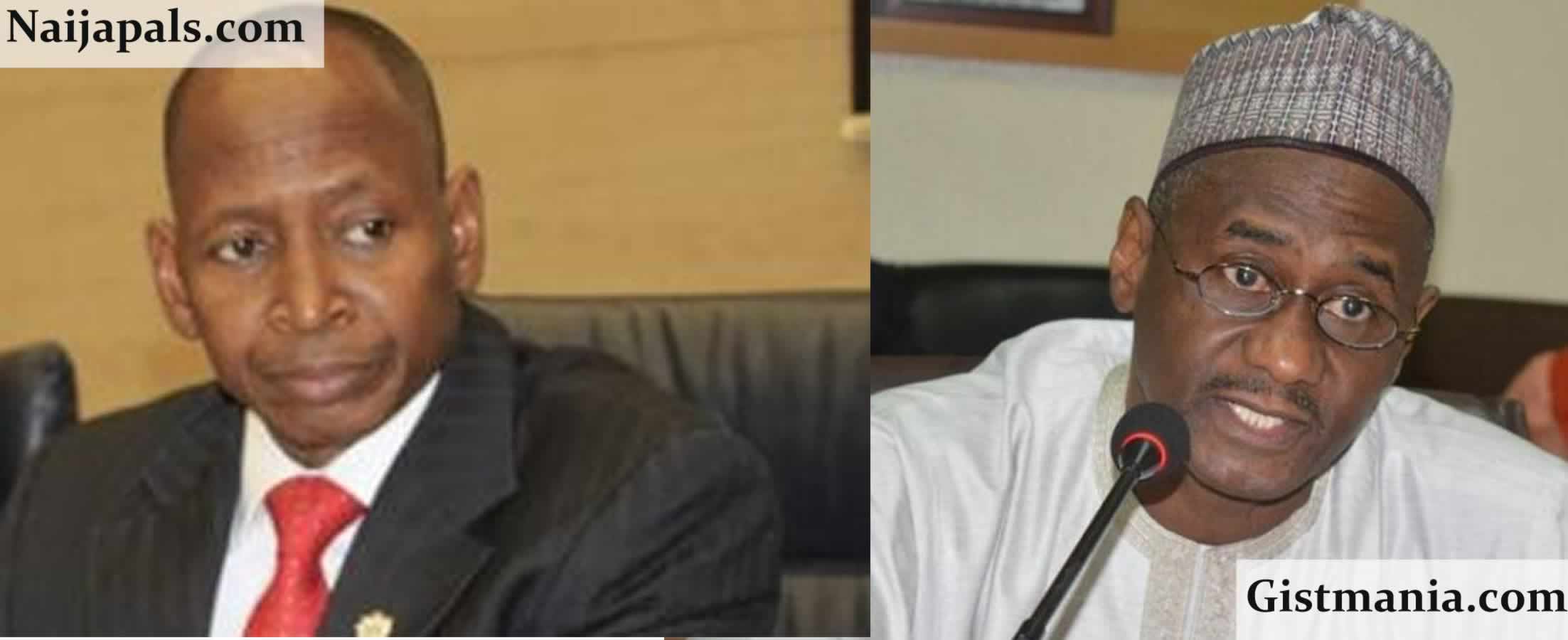
In a stunning revelation, Professor Usman Yusuf, former Executive Secretary of Nigeria's National Health Insurance Scheme (NHIS), has accused Ahmed Idris, the former Accountant General of the Federation, of withdrawing N10 billion from the Scheme's Treasury Single Account (TSA) without his approval. Yusuf made the claims in a statement issued on Thursday titled “Standing Firm For What Is Right.”
Yusuf stated that the two withdrawals of N5 billion each occurred despite his efforts to recover over N100 billion in NHIS funds that were reportedly trapped in 13 commercial banks. He claimed that these funds had been withheld in direct violation of a Federal Government directive requiring all Ministries, Departments, and Agencies (MDAs) to transfer their funds to the TSA with the Central Bank of Nigeria (CBN).
According to Yusuf, the illegal withdrawals by Idris were conducted without any consultation with him or approval as the CEO of NHIS. He expressed his frustration over his failed attempts to get assistance from senior government officials, including the then-Minister of Health, Prof. Isaac Adewole, CBN Governor Godwin Emefiele, Chief of Staff Abba Kyari, and Attorney General of the Federation.
Yusuf also described the challenges he faced in recovering the funds, noting that his repeated requests for meetings with Finance Minister Kemi Adeosun went unanswered. He recalled a tense moment during his suspension when he was contacted by Ibrahim Magu, the then-Acting Chairman of the Economic and Financial Crimes Commission (EFCC). According to Yusuf, Magu's team investigated the matter, recovering billions of Naira from banks and Health Maintenance Organizations (HMOs) based on the documents he provided.
Despite his advocacy for transparency and his role in the recovery efforts, Yusuf faces separate fraud charges related to his tenure at NHIS. The EFCC accuses him of inflating the ICT budget from N4.975 billion to N8.7 billion and awarding contracts to family members, accusations which he has denied.
Yusuf's statement has rekindled debate over the management of NHIS funds and the ongoing challenges faced by Nigeria’s anti-corruption agencies.
| Posted: at | |




 So sad)
So sad)  TRENDING GISTS
TRENDING GISTS  I'm No Longer Interested, My Spirit Has Left There - Fubara Speaks on Returning As Rivers Gov. (VID)
I'm No Longer Interested, My Spirit Has Left There - Fubara Speaks on Returning As Rivers Gov. (VID) FCT Minister, Nyesom Wike Storms Venue of PDP Meeting With Governors Present
FCT Minister, Nyesom Wike Storms Venue of PDP Meeting With Governors Present
 Panic In Abuja As Pastor Shoots Two Immigration Officers After Being Mistaken Them For Robbers
Panic In Abuja As Pastor Shoots Two Immigration Officers After Being Mistaken Them For Robbers Retired Teacher, Mallam Kabiru Killed, Wife Abducted As Bandits Invade Zamfara School Quarters
Retired Teacher, Mallam Kabiru Killed, Wife Abducted As Bandits Invade Zamfara School Quarters Army Busts Gunrunning Syndicate in Plateau, Two Arrested With AK-47 (Photos)
Army Busts Gunrunning Syndicate in Plateau, Two Arrested With AK-47 (Photos) Ringside Rumble? Fans Hype Possible Boxing Showdown Between Small Doctor And Portable
Ringside Rumble? Fans Hype Possible Boxing Showdown Between Small Doctor And Portable